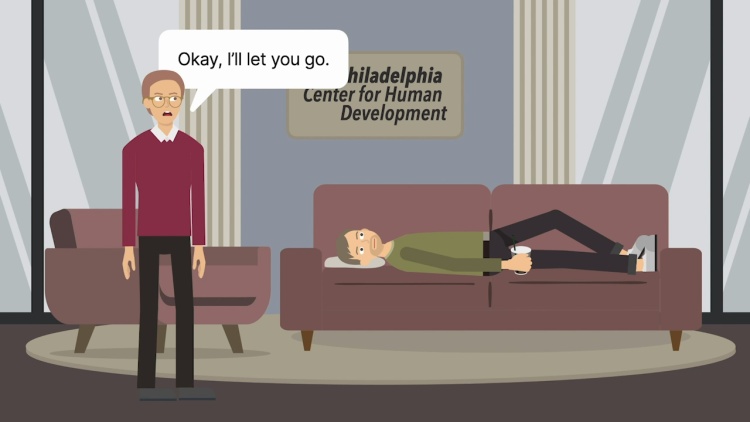Emerich v. Philadelphia Center for Human Development, Inc.
Supreme Court of Pennsylvania
720 A.2d 1032 (1998)
- Written by Craig Conway, LLM
Facts
Teresa Hausler and Gad Joseph lived together as boyfriend and girlfriend. For an extended period of time, both had undergone treatment for mental illnesses and drug problems. Hausler and Joseph were each counseled by Anthony Scuderi (defendant) at the Philadelphia Center for Human Development, Inc. (PCHD) (defendant). Scuderi diagnosed Joseph with having post-traumatic stress disorder and explosive and schizo-affective personality disorders. It was additionally well known to Scuderi that Joseph had a history of physically and verbally abusing Hausler. Subsequently, Hausler decided to end her relationship with Joseph. She moved out of their apartment and relocated to a different city. During subsequent therapy sessions, Joseph told Scuderi that he wanted to harm Hausler. One morning, Joseph called Scuderi and informed him that he was going to kill Hausler. Scuderi immediately scheduled and held a therapy session with Joseph later that morning. During the session, Joseph indicated that his anger was getting worse, and he told Scuderi that he would kill Hausler if she came back to the apartment to get some of her things. However, Joseph later stated that he was in control and would not harm Hausler. A few minutes after Scuderi's session with Joseph ended, Hausler telephoned Scuderi to inform him that she was back in town to get some of her clothes from her old apartment. Scuderi told Hausler not to go to the apartment and instead to immediately leave town. Hausler ignored Scuderi’s suggestion. When Hausler went to the apartment, she was shot and killed by Joseph. Joseph was arrested and convicted of Hausler's murder. Ronald Emerich, as administrator of Hausler’s estate (plaintiff), filed a wrongful death action against Scuderi, PCHD, and others. The trial court granted the defendants’ motions for a judgment on the pleadings and dismissed the complaint. Emerich appealed.
Rule of Law
Issue
Holding and Reasoning (Cappy, J.)
What to do next…
Here's why 907,000 law students have relied on our case briefs:
- Written by law professors and practitioners, not other law students. 47,100 briefs, keyed to 996 casebooks. Top-notch customer support.
- The right amount of information, includes the facts, issues, rule of law, holding and reasoning, and any concurrences and dissents.
- Access in your classes, works on your mobile and tablet. Massive library of related video lessons and high quality multiple-choice questions.
- Easy to use, uniform format for every case brief. Written in plain English, not in legalese. Our briefs summarize and simplify; they don’t just repeat the court’s language.





